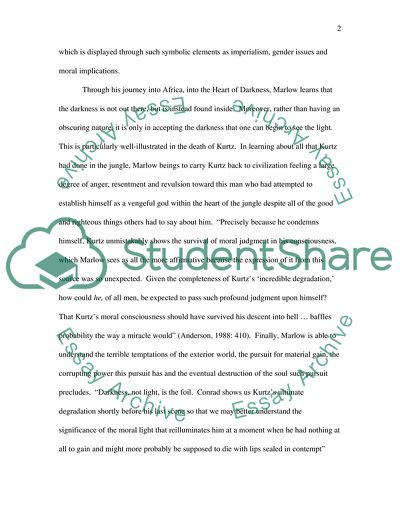Cite this document
(Joseph Conrads Abandonment in Heart of Darkness Book Report/Review, n.d.)
Joseph Conrads Abandonment in Heart of Darkness Book Report/Review. Retrieved from https://studentshare.org/literature/1710290-british-literature-heart-of-darkness
Joseph Conrads Abandonment in Heart of Darkness Book Report/Review. Retrieved from https://studentshare.org/literature/1710290-british-literature-heart-of-darkness
(Joseph Conrads Abandonment in Heart of Darkness Book Report/Review)
Joseph Conrads Abandonment in Heart of Darkness Book Report/Review. https://studentshare.org/literature/1710290-british-literature-heart-of-darkness.
Joseph Conrads Abandonment in Heart of Darkness Book Report/Review. https://studentshare.org/literature/1710290-british-literature-heart-of-darkness.
“Joseph Conrads Abandonment in Heart of Darkness Book Report/Review”. https://studentshare.org/literature/1710290-british-literature-heart-of-darkness.


